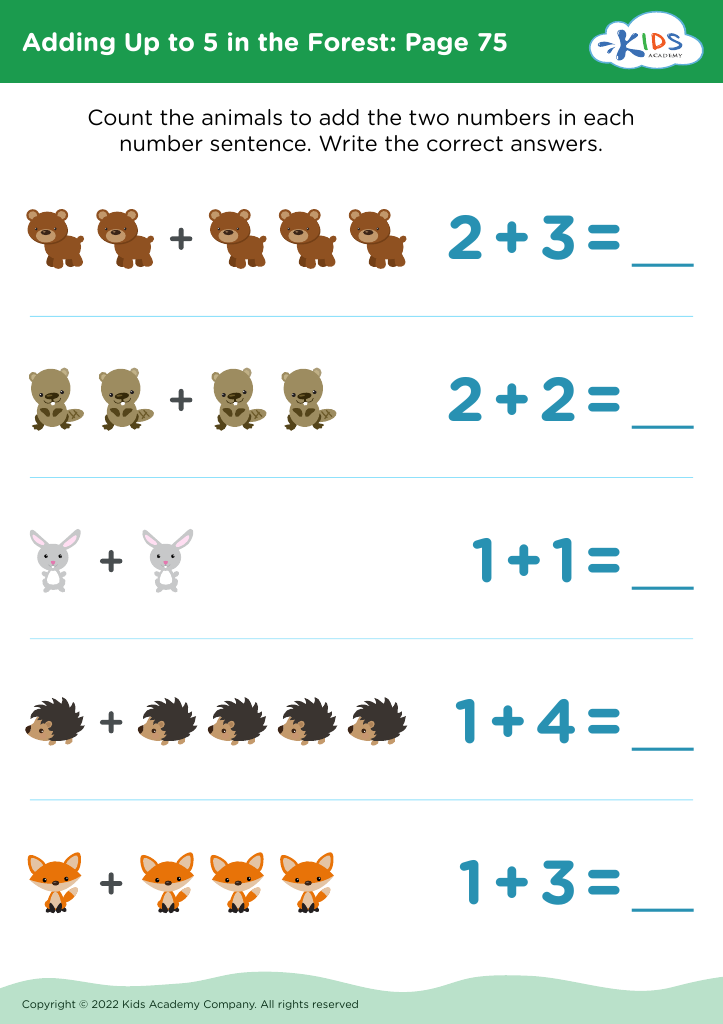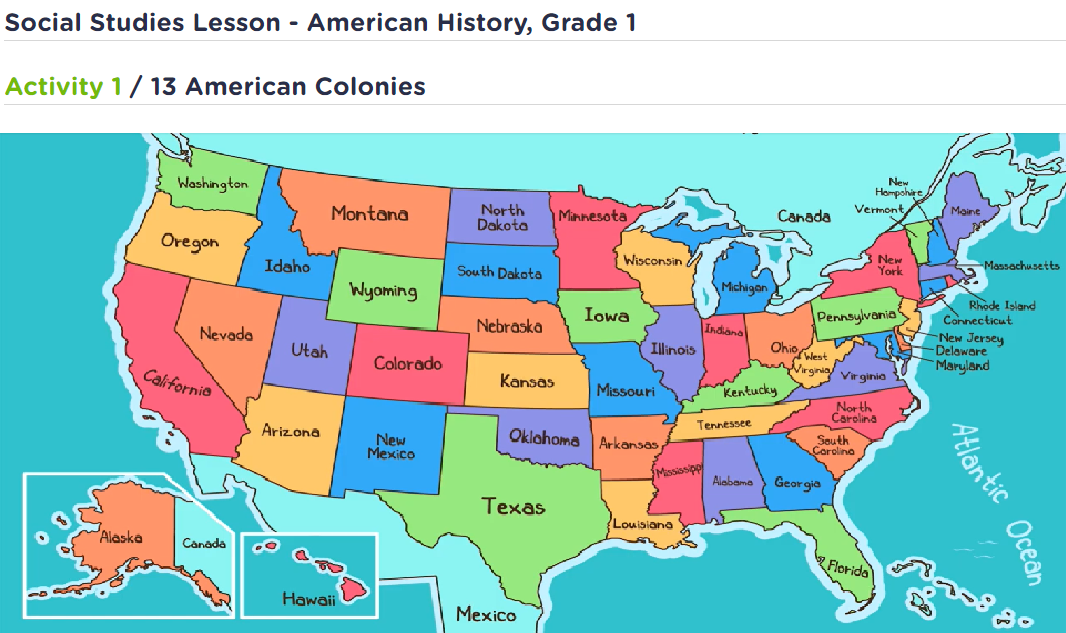Basic math practice Math Worksheets for 4-Year-Olds
6 filtered results
-
From - To
Introduce your 4-year-old to the wonderful world of numbers with our Basic Math Practice Worksheets! Handpicked for young learners, these fun and engaging worksheets focus on fundamental math skills including number recognition, counting, basic addition, and more. With captivating illustrations and interactive activities, children will develop essential math foundations while having fun. Perfect for at-home learning or supplementing preschool curriculum, our worksheets make math both accessible and enjoyable for little ones. Download now from Kids Academy to give your child an early advantage in mastering basic math concepts through playful practice!


Sort and Count to the Moon Worksheet
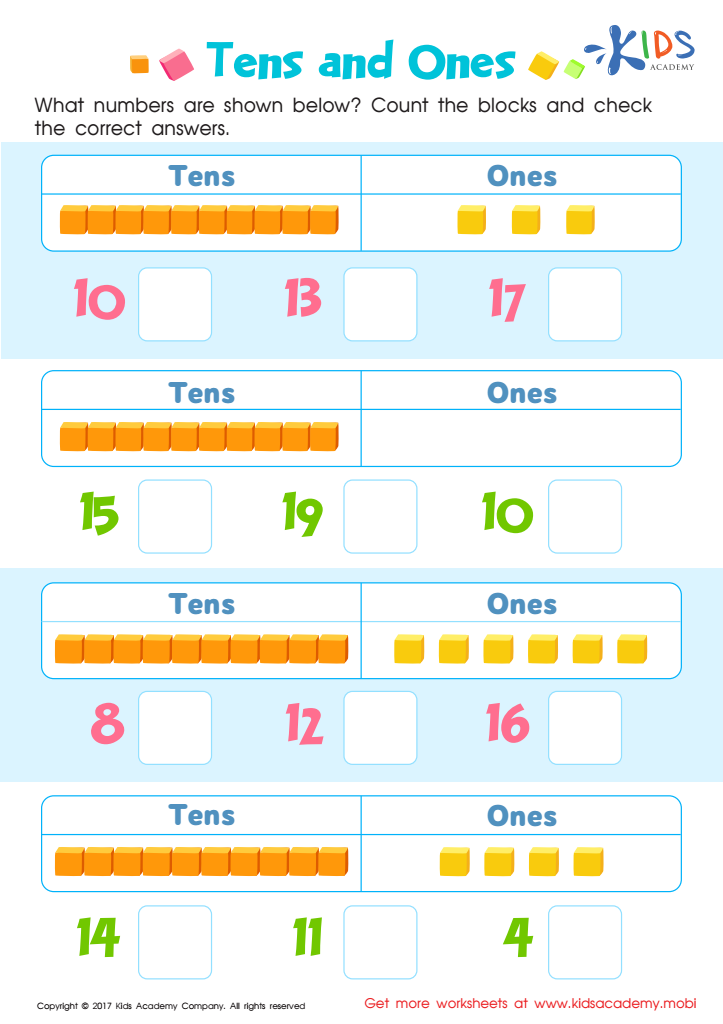

Tens and Ones Worksheet
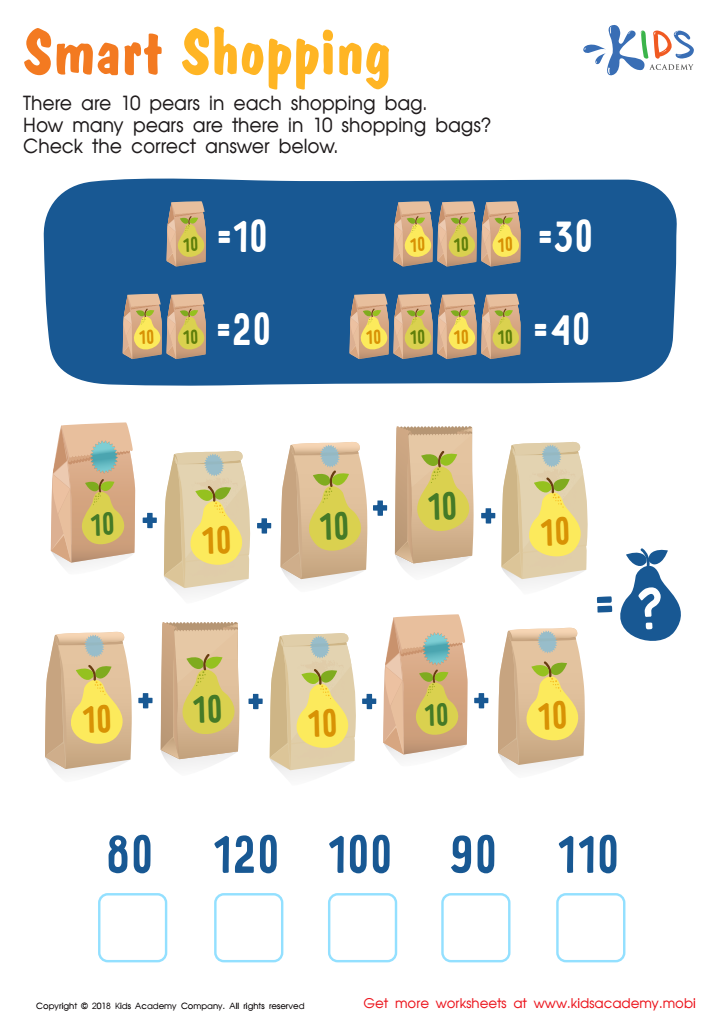

Smart Shopping: Trade Tens for a Hundred Worksheet
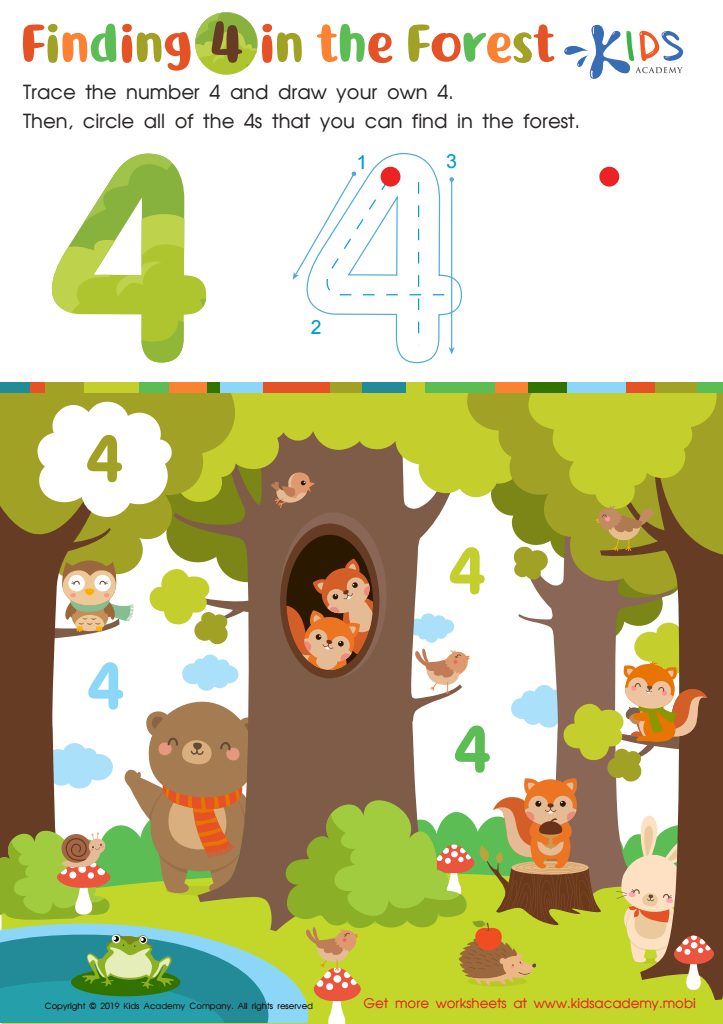

Finding 4 in the Forest Worksheet
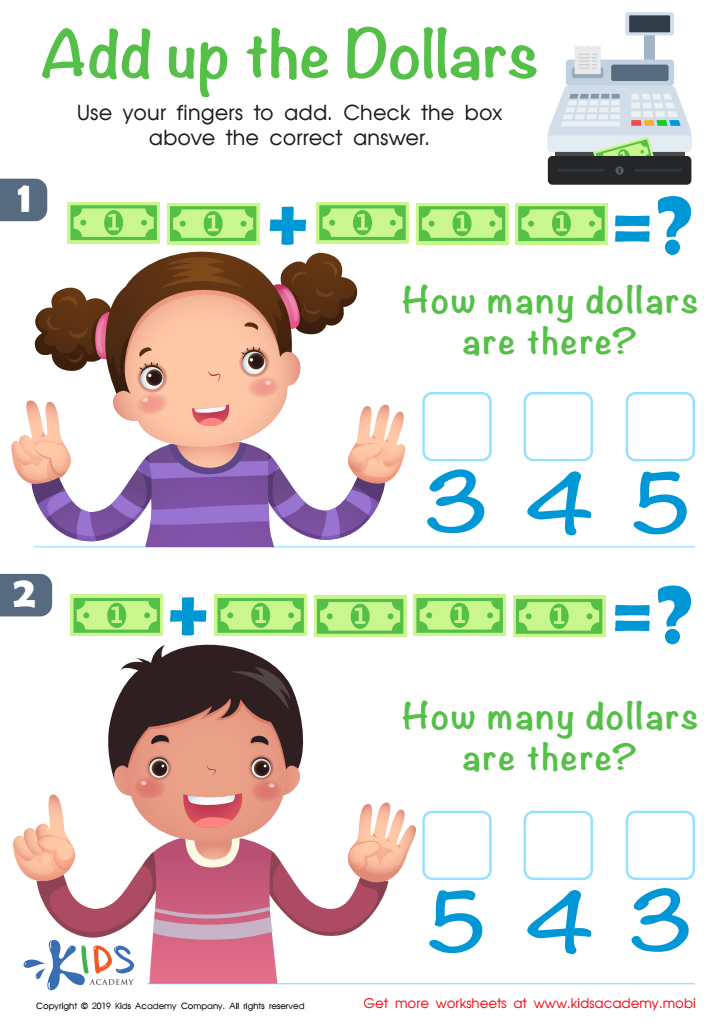

Add up the Dollars Worksheet
Parents and teachers play a critical role in early childhood education, and fostering an interest in basic math for 4-year-olds is crucial for several reasons. At this age, children's brains are highly receptive to new information, and early math skills form the foundation for more complex mathematical concepts they will encounter later. Introducing young children to basic math helps them develop fundamental skills like number recognition, counting, and simple addition and subtraction, which are essential for their future academic success.
Early math practice is not just about numbers; it enhances critical thinking, problem-solving skills, and cognitive development. Children learn to recognize patterns, compare quantities, and understand spatial relationships, all of which are applicable in everyday life. These foundational skills also strengthen a child's ability to focus, follow directions, and persist through challenges — traits that are valuable in all learning areas.
Additionally, incorporating math into fun, everyday activities nurtures a positive attitude toward the subject. When children see math as enjoyable and relevant, they are more likely to develop a lasting interest and confidence in their abilities, thereby reducing anxiety around the subject as they progress through school. Therefore, parents and teachers should prioritize basic math practice to give children a strong start in their educational journey.
 Assign to My Students
Assign to My Students

